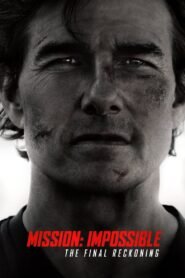
Video Sources 4 Views Report Error

Synopsis
Kat is an improv comedy teacher beginning to question if she’s missed her shot at success. When an undercover cop offers her the role of a lifetime, she recruits two of her students to infiltrate London’s gangland by impersonating dangerous criminals.
Deep Cover is a gripping 1992 crime thriller that blends neo-noir style with socially conscious storytelling. Directed by Bill Duke and starring Laurence Fishburne and Jeff Goldblum, the film is both a pulse-pounding undercover drama and a deep exploration of morality, corruption, and identity in the war on drugs.
While it initially flew under the radar, Deep Cover has since become a cult favorite, praised for its bold narrative, stylish execution, and cultural relevance—particularly within the context of 1990s America.
Plot Overview
Laurence Fishburne plays Russell Stevens Jr., a Cincinnati police officer with a haunted past. After witnessing his father’s death as a child, Stevens vows never to follow the same destructive path. As a straight-laced cop with a spotless record, he’s approached by DEA agent Gerald Carver (played by Charles Martin Smith) to go deep undercover in Los Angeles, infiltrating the West Coast drug trade.
Taking on the alias John Hull, Stevens quickly rises through the criminal ranks, partnering with volatile lawyer-turned-drug-dealer David Jason (Jeff Goldblum). As Hull becomes more entangled in the underworld, he begins to lose sight of the line between duty and criminality, justice and survival. The deeper he goes, the more he questions who the real villains are—the criminals on the street or the corrupt institutions backing the drug war.
A Neo-Noir with a Social Conscience
Deep Cover sets itself apart from typical cop thrillers by giving its protagonist depth and moral conflict. Stevens isn’t just fighting gangsters—he’s wrestling with internal trauma, racial identity, and systemic injustice. The film critiques the hypocrisy of the government’s war on drugs, suggesting that corruption runs deep not only in the streets but in the very agencies sworn to uphold the law.
Bill Duke’s direction infuses the movie with stylish visuals and moody lighting, evoking classic film noir but through a modern, urban lens. The narration by Fishburne gives the film a poetic edge, turning what could have been a standard crime drama into a meditation on identity and ethics.
Performances That Stand Out
- Laurence Fishburne delivers a powerhouse performance, portraying the complexity of a man torn between his role as a cop and the persona he adopts as a criminal. His transition from idealistic officer to morally ambiguous antihero is subtle, emotional, and compelling.
- Jeff Goldblum, best known for more eccentric or scientific roles, is a revelation as the ambitious and increasingly unhinged David Jason. His descent into violence and moral decay mirrors Hull’s own crisis, offering a mirror image of corruption from a different background.
- Victoria Dillard also delivers a strong performance as Betty, adding emotional weight and humanity to the story.
Cultural Impact and Legacy
One of the film’s most enduring contributions to pop culture is its theme song, “Deep Cover,” by Dr. Dre and Snoop Dogg—the latter’s first major appearance. The song not only became iconic in its own right but marked the beginning of Snoop Dogg’s legendary career. In many ways, Deep Cover helped bridge cinema and hip-hop, reflecting the realities of inner-city life through both film and music.
Though underrated upon release, Deep Cover has gained critical reappraisal over the years for its ahead-of-its-time message. It confronts racial profiling, institutional manipulation, and the blurry line between law enforcement and criminality in ways that resonate even more strongly today.
Themes That Resonate Today
- Identity: Who are we when the mask we wear becomes who we are? Russell’s journey from Stevens to Hull explores how identity can be lost or reshaped by pressure, power, and survival.
- Corruption: The film doesn’t just point fingers at drug dealers—it questions the motives of federal agencies and political structures that claim moral superiority while engaging in equally shady dealings.
- Race and Power: Stevens’ role as a Black officer used as a tool by white institutions touches on themes of exploitation, control, and systemic racism.
- Moral Ambiguity: The film avoids easy answers. Good and evil are not black-and-white in Deep Cover—and neither is justice.
Why It Still Matters
In an era when discussions around police reform, racial justice, and government accountability dominate headlines, Deep Cover feels more relevant than ever. It’s not just an undercover thriller—it’s a bold, cinematic statement about trust, betrayal, and what happens when the system you serve turns its back on you.
Final Thoughts
Deep Cover is a stylish, intelligent, and emotionally resonant crime film that deserves its place in the canon of great American cinema. With unforgettable performances, a haunting soundtrack, and themes that still hit hard, it’s a film that remains powerful over 30 years later.
If you’re looking for a smart, socially charged thriller with grit, soul, and lasting impact, Deep Cover is a must-watch.
Original title Deep Cover
IMDb Rating n/A n/A votes
TMDb Rating 6.715 137 votes
Director
Director
Cast
Marlon
Hugh
Shosh
Metcalfe
Billings
Harriet
Sagar
Dawes





























